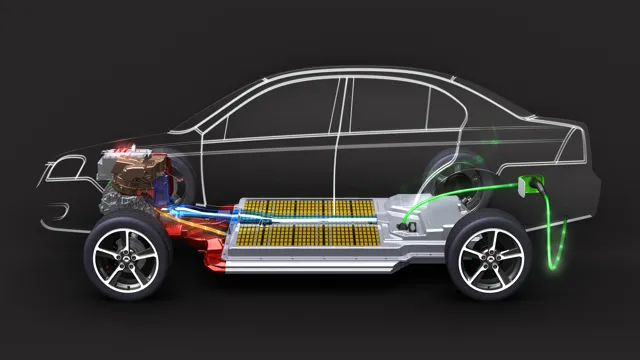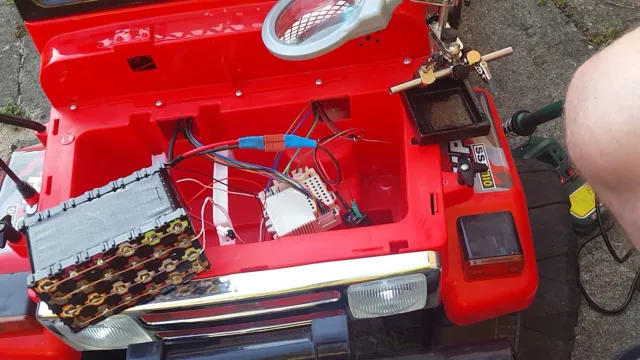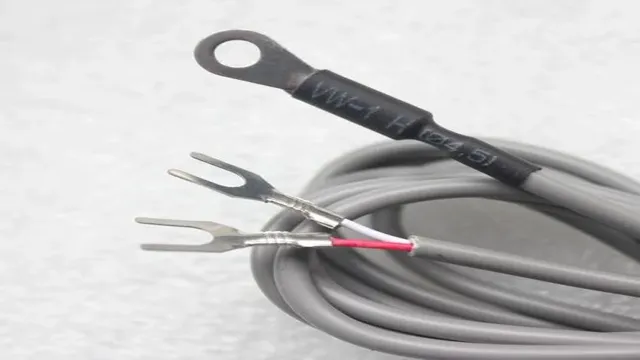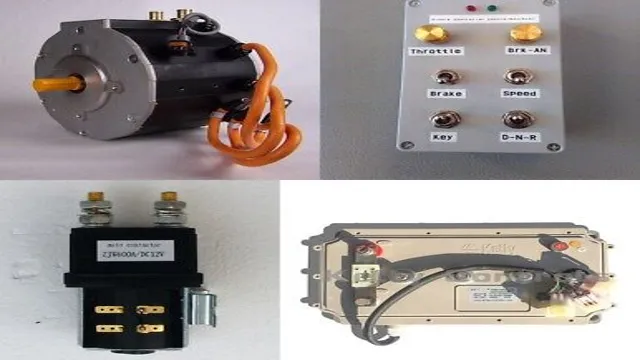Revolutionizing the Roads: The Latest Electric Car Battery Developments To Watch Out For
Electric cars are slowly but surely gaining popularity and adopting mainstream status in the automotive industry. Their basic components are similar to traditional cars, but the batteries power them instead of fossil fuels. As new developments take place, electric car batteries are becoming even more efficient and reliable, and this is something that people are closely following.
Better batteries indicate an improved driving range, which in turn mean electric cars can travel further than previously. In this blog, we will discuss the latest developments in electric car battery technology that are making these vehicles more practical for daily use.
Advancements in Lithium Ion Batteries
Electric car battery developments have come a long way in recent years, and advancements in lithium-ion batteries have played a vital role. Lithium-ion batteries have revolutionized the industry due to their increased energy density, longer lifespan, and reduced weight. They also require less maintenance, making them more cost-effective over time.
With the ongoing push for more sustainable transportation, electric vehicles have become increasingly popular, making battery technology more critical than ever. Companies are continually investing in research and development to create more efficient and reliable batteries. As a result, more affordable electric vehicles are now available to consumers, and the range of these vehicles is continually improving.
It is an exciting time in the world of electric car battery developments, and we can expect significant progress in this industry in the years to come.
Increased Energy Density
Lithium ion batteries have come a long way in recent years and advancements in technology have led to increased energy density, which is a major benefit. This means that batteries can store more energy in a smaller space, making them more efficient and powerful. It’s incredible to think that the same battery that we use to power our smartphones and laptops can now power electric cars and even entire homes.
With the rise of renewable energy sources such as solar and wind power, the demand for more efficient batteries has never been higher. Luckily, lithium ion batteries are continuously evolving and improving, allowing us to store and use energy more efficiently than ever before. It’s exciting to see what the future holds for these incredible batteries and how they will continue to revolutionize the way we live.
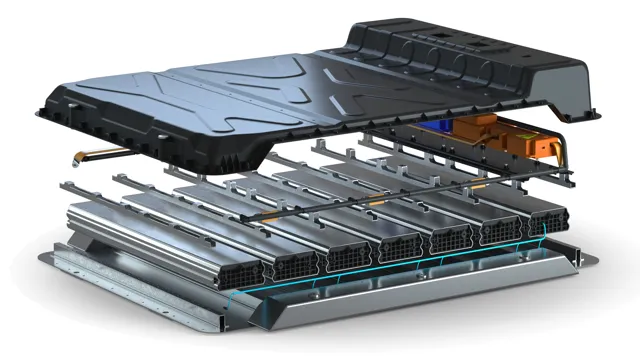
Reduced Charging Time
One of the major advancements in lithium-ion batteries is the reduction of charging time. With the increasing demand for electric vehicles and portable devices, battery technology has come a long way in recent years. Nowadays, we can find lithium-ion batteries that can be charged up to 80% in just 30 minutes.
This is a remarkable improvement compared to the conventional lead-acid batteries, which can take hours to charge. Thanks to the development of new materials and manufacturing processes, the energy density of lithium-ion batteries has increased significantly, allowing for faster charging while maintaining longer lifespan and improved safety. As a result, people now have the convenience of charging their devices and vehicles quickly, making it easier to stay connected and on the go.
With the continuous improvement in lithium-ion battery technology, we can expect to see more breakthroughs that will further enhance our lives and the environment.
Improved Battery Lifespan
Improved Battery Lifespan One of the most significant advancements in technology in recent years has been the development and improvement of lithium-ion batteries. These batteries, which are found in most smartphones, tablets, laptops, and electric cars, are known for their high energy density, which means they can store a lot of energy in a small space. However, they have been notorious for their relatively short lifespan and the tendency to degrade over time, making them less efficient.
Fortunately, modern lithium-ion batteries are far more robust and reliable than their predecessors. They have a higher cycle life, which means they can be charged and discharged more times before their capacity starts to degrade, and they are less vulnerable to overheating and explosion. Improvements in battery management systems have also contributed to the enhanced lifespan of lithium-ion batteries.
These systems can monitor and control the battery’s temperature, charge rate, and discharge rate to ensure optimal performance and prevent damage. These advancements in lithium-ion battery technology have significant implications for a range of industries, from consumer electronics to electric vehicles. Better battery longevity means that products will last longer and be more durable, reducing the need for frequent replacements.
This will not only benefit consumers, but it will also have environmental benefits, as fewer batteries will be discarded as e-waste. Furthermore, as electric vehicles become more popular, improved battery lifespan means that the cars will be more reliable and have a longer driving range, making them a more practical option for everyday use. Overall, the advancements in lithium-ion battery technology are a testament to human ingenuity and the speed at which technology can be developed.
As we continue to improve and innovate, it’s likely that we’ll see even further advancements that will continue to benefit our lives in countless ways.
Emerging Solid-State Battery Technology
Electric car battery developments continue to improve with emerging solid-state battery technology. Solid-state batteries are considered the future of electric vehicle batteries. They use a solid electrolyte instead of a liquid one, making them more safe, durable, and energy-dense.
These new batteries could potentially double the driving range of electric cars while significantly reducing the risk of overheating and fire hazards. Solid-state batteries are also more environmentally friendly since they use fewer materials and could be recycled more efficiently. Companies like Toyota, BMW, and Volkswagen are investing heavily in this technology and are expected to introduce solid-state batteries in the next few years.
With the arrival of solid-state batteries, electric cars may soon become the norm, offering a cleaner and more sustainable way to travel.
Higher Energy Density
Solid-state battery technology is a buzzword in the battery industry due to its potential to deliver higher energy density. Unlike traditional batteries that use a liquid electrolyte, solid-state batteries use a solid electrolyte, which makes them safer and more efficient. Solid-state batteries have a higher energy density than traditional batteries, meaning they can store more energy in a smaller space.
This makes them suitable for use in electric vehicles, smartphones, laptops, and other electronic devices. One of the main advantages of solid-state batteries is that they are less prone to catching fire and exploding, making them a safer alternative to traditional lithium-ion batteries. Furthermore, these batteries are more durable and have a longer lifespan, which will reduce the number of batteries that end up in landfills.
With the development of solid-state battery technology, we can expect to see more efficient and longer-lasting batteries in the future.
Improved Safety and Stability
As technology advances, scientists are developing improved solid-state battery technology that promises to revolutionize the energy storage industry. These batteries are expected to be safer, more stable, and more efficient than traditional lithium-ion batteries, which have been known to overheat or catch fire. Solid-state batteries replace the liquid electrolyte commonly used in lithium-ion batteries with a solid polymer, ceramic, or glass electrolyte.
This eliminates the risk of leakage and keeps the battery stable even when subjected to extreme temperatures. The solid-state battery technology allows for more energy to be packed into a smaller space, which translates to longer battery life and an overall reduction in weight. Additionally, researchers report that solid-state batteries can charge much faster than traditional batteries, which could be a significant advantage for electric vehicles.
While solid-state batteries are still in the development stages, they are expected to pave the way for a safer, more stable, and more efficient future for energy storage.
Potential to Lower Cost
Solid-State Battery Technology The emergence of solid-state battery technology has the potential to lower the cost of batteries and revolutionize the global energy market. Compared to traditional lithium-ion batteries, solid-state batteries offer several advantages such as higher energy density, longer lifespan, and improved safety. Solid-state batteries also don’t require expensive materials like cobalt, which is a major cause of price volatility in lithium-ion batteries.
With the increasing demand for electric vehicles and renewable energy storage, solid-state batteries could pave the way for a sustainable and efficient future. The potential benefits of solid-state battery technology are immense and could lead to a significant reduction in carbon emissions and the overall cost of clean energy.
Alternative Battery Technologies
Electric car battery developments have come a long way in the past decade. While most electric vehicles still use lithium-ion batteries, alternative battery technologies are being developed that could potentially offer longer range, faster charging times, and safer operation. One promising alternative is solid-state batteries, which use a solid electrolyte instead of a liquid electrolyte.
Solid-state batteries are more energy-dense and can handle higher temperatures, which could lead to improved performance and reliability. Another exciting development is flow batteries, which store energy in two separate tanks of liquid electrolyte that are passed through a membrane when the battery is being used. With flow batteries, it’s possible to recharge electric cars quickly by simply swapping out the spent electrolyte for fresh electrolyte.
As technology advances, we can expect to see more electric car battery developments that will revolutionize the way we think about sustainable transportation.
Hydrogen Fuel Cells
Hydrogen Fuel Cells When it comes to alternative battery technologies, hydrogen fuel cells have become a popular contender in recent years. These cells generate electricity through a chemical reaction between hydrogen and oxygen, producing only water as a byproduct. This means that instead of relying on fossil fuels, hydrogen fuel cells can provide a clean and sustainable form of energy.
One of the major benefits of hydrogen fuel cells is their longevity. Unlike traditional batteries, fuel cells can last for thousands of hours without losing their energy output. Additionally, they can be refueled quickly and easily, making them a practical option for a variety of applications.
However, there are still some challenges to overcome with hydrogen fuel cells. The biggest hurdle is the cost of production and infrastructure. It can be expensive to produce the necessary hydrogen for fuel cells, and there are still limited options for refueling stations.
Overall, hydrogen fuel cells show a lot of promise as an alternative energy source. As technology continues to advance and costs decrease, they could become an even more accessible and widely-used option for powering everything from cars to homes.
Sodium-Ion Batteries
Sodium-ion batteries are a promising alternative to traditional lithium-ion batteries. Unlike lithium, sodium is abundant and widely available, making it a more sustainable option. The technology behind sodium-ion batteries is still in the experimental phase, but they have shown potential for use in energy storage systems for renewable power.
One of the challenges currently facing sodium-ion batteries is their lower energy density compared to lithium-ion batteries. However, researchers are working to improve their capacity and performance. With continued development, sodium-ion batteries could become a viable option for powering everything from smartphones to electric cars.
It’s exciting to think about the possibilities of this technology and how it could contribute to a more sustainable future for our planet.
Future Innovations in Electric Car Batteries
Electric car battery developments are continuously evolving as the demand for electric vehicles grows. There are numerous future innovations in electric car batteries, including solid-state batteries, which may replace the liquid electrolyte with a solid electrolyte, providing a higher energy density. Additionally, lithium-sulfur batteries may offer up to 5x the energy density of traditional lithium-ion batteries, while sodium-ion batteries could provide a more cost-effective alternative to current battery technology.
Battery swapping systems are being developed to enable drivers to switch out depleted batteries for fully charged ones, providing a similar experience to refueling a gasoline car. Furthermore, wireless charging systems could be integrated into roadways, allowing electric vehicles to charge while driving, eliminating the need for frequent pit stops. With these new developments, the future of electric vehicles is looking brighter, as they offer a more sustainable and economic alternative to traditional gasoline-powered cars.
Conclusion
It’s no shock that electric car battery technology has come a long way in recent years. With advancements in chemistry, manufacturing processes, and energy density, we’re seeing longer ranges, faster charging, and even reusable battery materials. It’s like we’re powering up for the next level in sustainable transportation.
But as we spark further innovation, it’s important to stay grounded and consider the lifecycle of these batteries. After all, we want to ensure that the future of clean energy is as enduring as it is electrifying.”
FAQs
What are some recent developments in electric car battery technology?
Recent developments in electric car battery technology include the use of solid-state batteries, longer-lasting lithium-ion batteries, and the development of fast-charging systems.
What is the range of electric cars with current battery technology?
The range of electric cars with current battery technology varies depending on the model and manufacturer, but typically ranges from 100-300 miles on a single charge.
How long do electric car batteries last?
The lifespan of electric car batteries varies depending on how often they are charged, but most manufacturers offer warranties for 8-10 years or 100,000-150,000 miles.
Can electric car batteries be recycled?
Yes, electric car batteries can be recycled. The materials used in the batteries, including lithium, cobalt, and nickel, can be extracted and reused in new batteries or other products. Recycling programs are currently being developed and implemented by manufacturers and governments.
